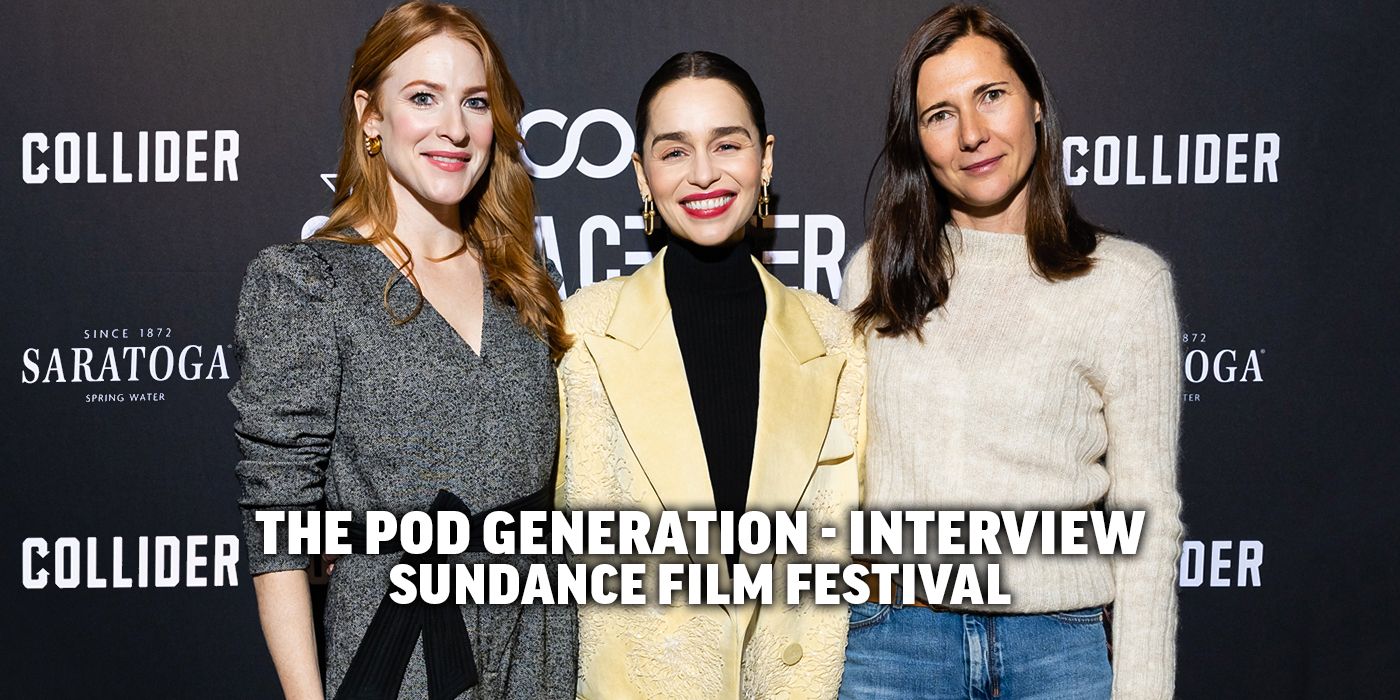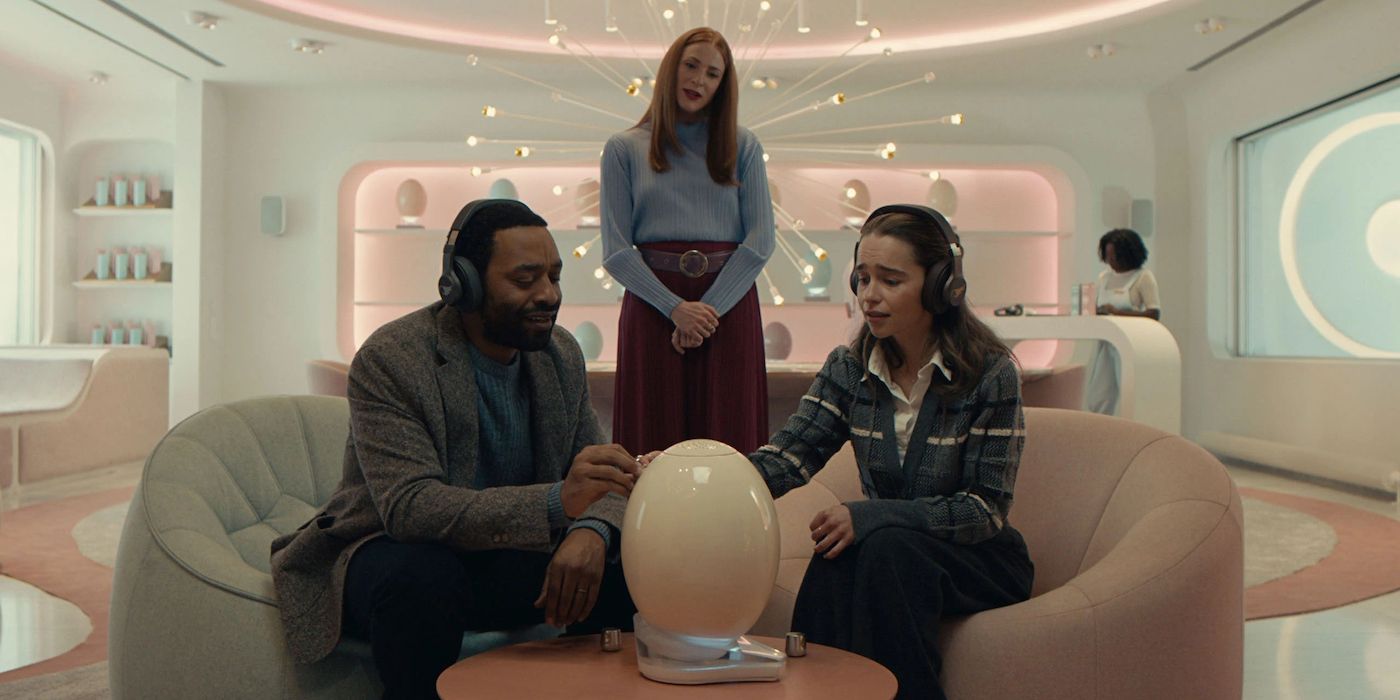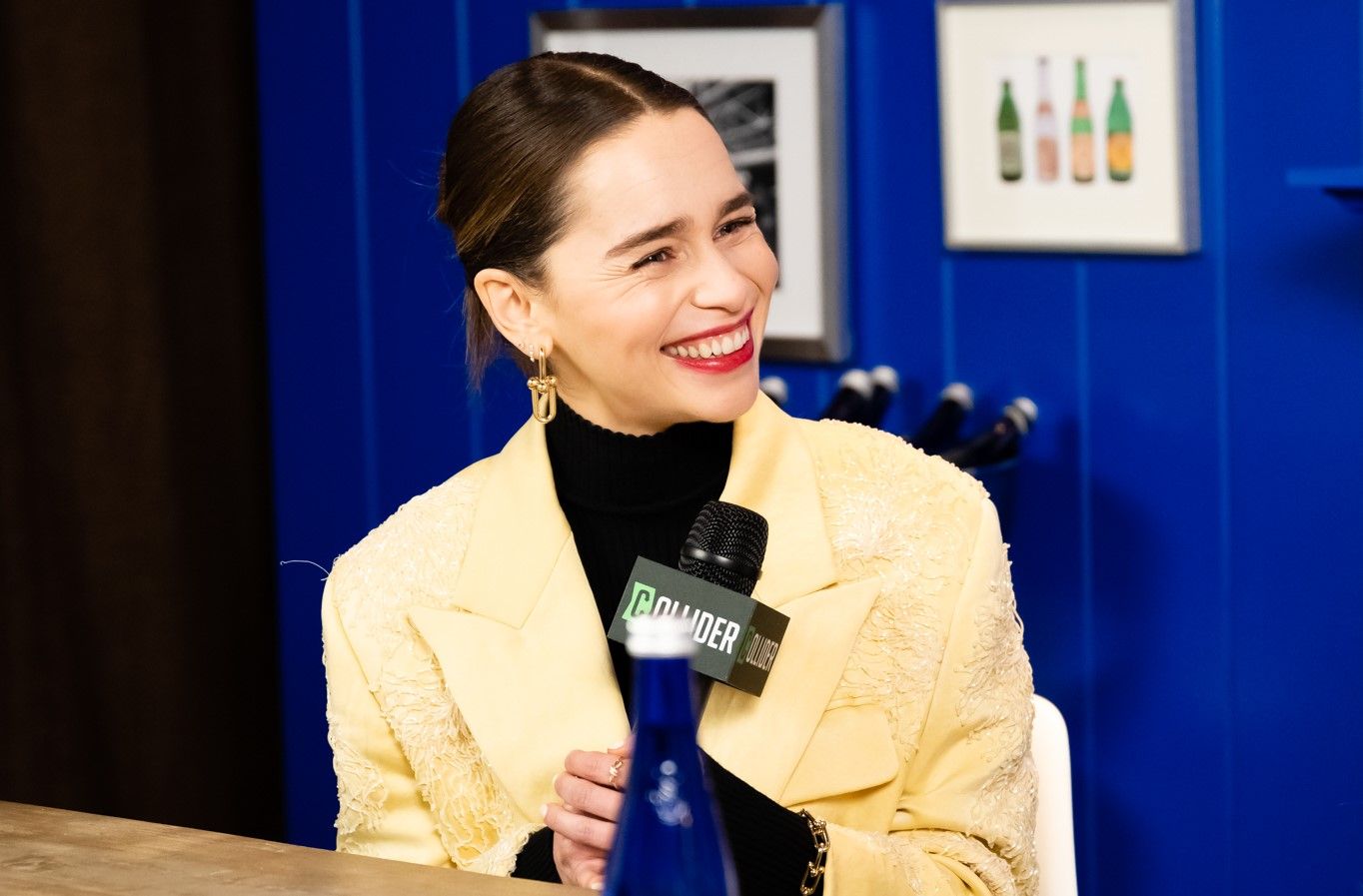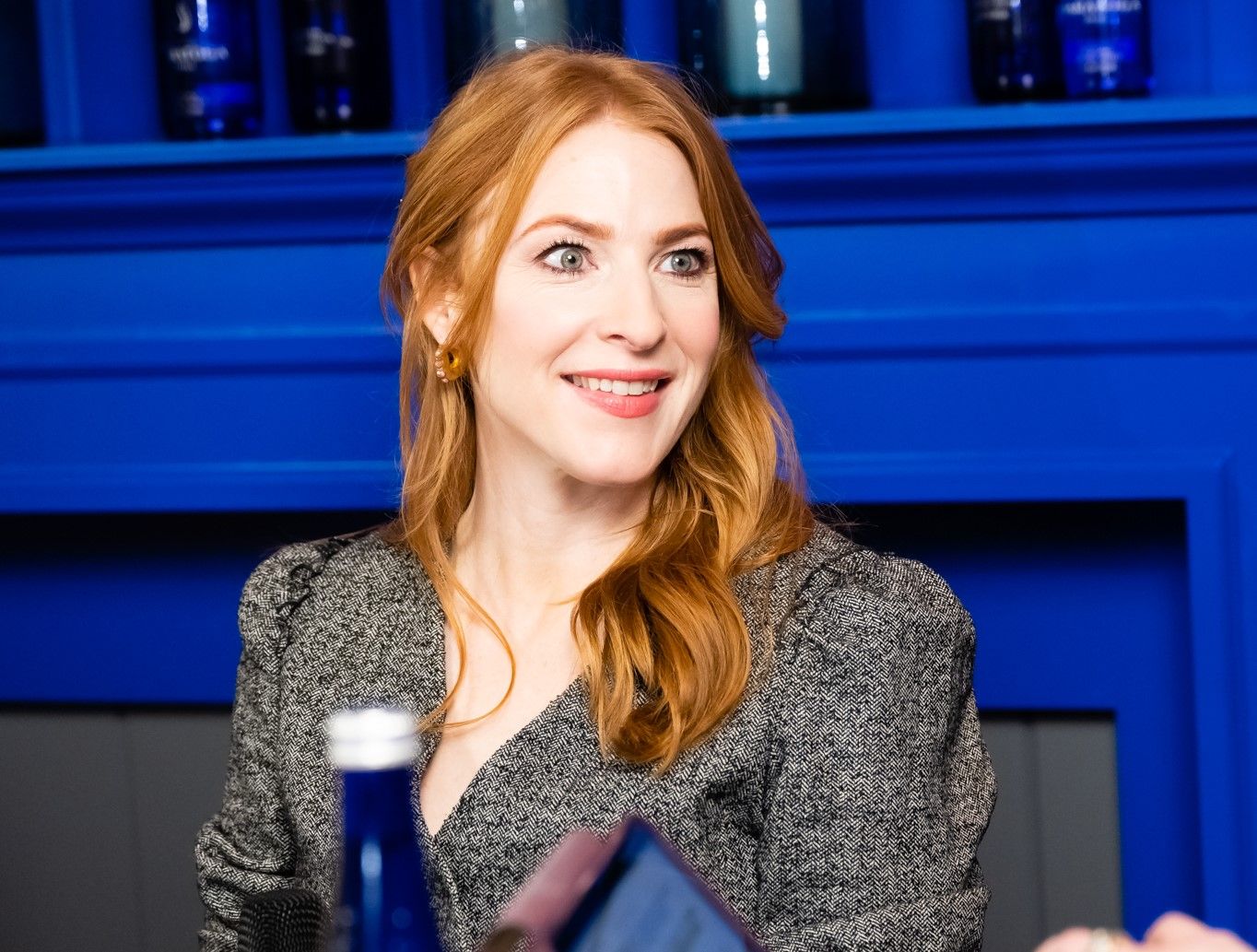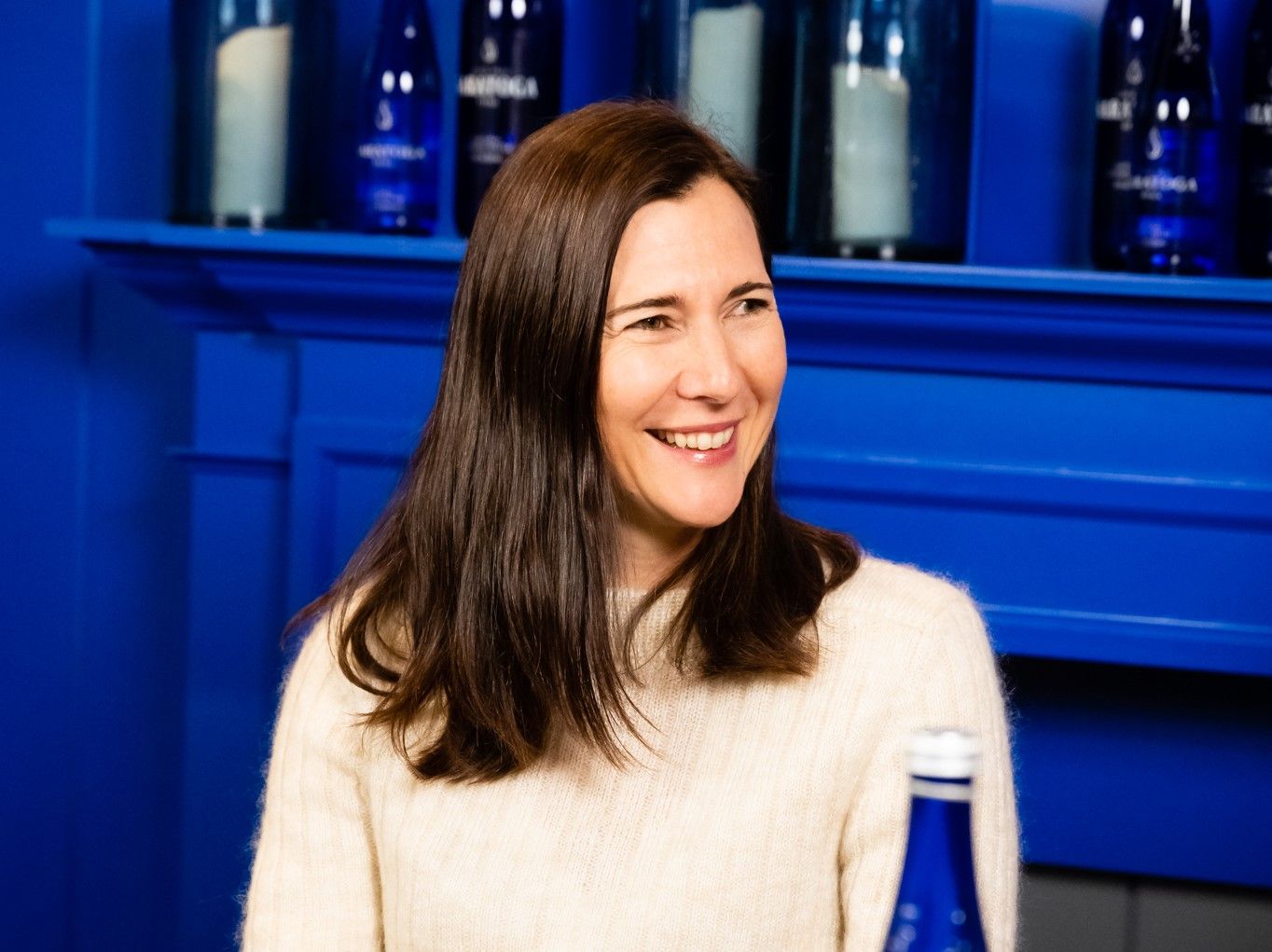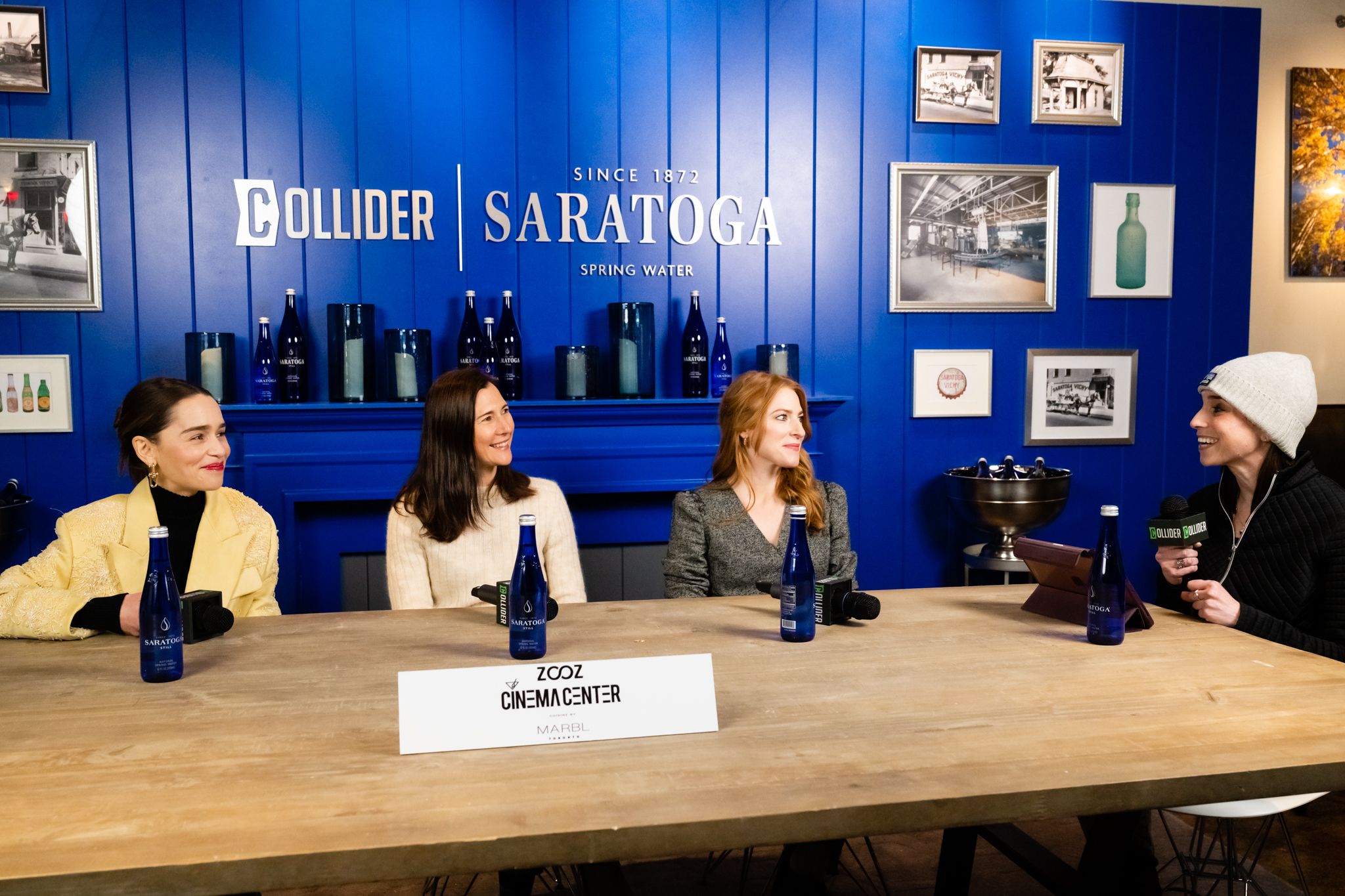Having well-known talent attached to a project can make all the difference. That was the case with the Sundance 2023 selection, The Pod Generation. Emilia Clarke was eager to work with writer-director Sophie Barthes and was also determined bring her story to screen. Signing on as a lead actor was key to making that happen, but so was her contribution as an executive producer on the production.
Clarke stars opposite Chiwetel Ejiofor as Rachel and Alvy, a couple living in the not-so-distant future with drastically different opinions on technology, how to live their lives, and how to have a baby. He’s a botanist determined to preserve as much of the natural world as possible whereas she’s a rising star at a tech company who embraces the surge of AI devices designed to make life easier. When Rachel scores a spot at the Womb Center, a facility that offers wannabe parents the opportunity to have a child with more convenience by using detachable, portable wombs — or rather, pods — she and Alvy explore, and debate, the role advanced technologies are playing in their lives.
In celebration of The Pod Generation’s Sundance premiere, Barthes, Clarke, and Rosalie Craig who delivers a pitch-perfect performance as Linda, the head of the Womb Center, all visited the Collider Studio presented by Saratoga Spring Water to discuss their experience bringing the story to screen. Barthes reveals how the story evolved over the years, Clarke offers insight into her experience producing her very first feature film, Craig discusses her approach to playing the movie’s most “demented” character, and so much more! Hear it all for yourself in the video at the top of this article or you can read the transcript below.
I always love hearing about the evolution of a script, so what was the very first idea you came up with and do you remember the last thing you came up with that brought everything together?
BARTHES: It was a very long process. I think maybe when I was expecting my first child I started having dreams, very strange dreams during that pregnancy and I think maybe this was the beginning of the process, and this was 13 years ago. But then it evolved, and I didn't write it for a long time. The process is mysterious. You never know how you come to write the story after so many years.
And what made it whole I remember when we were editing we couldn't find the beginning of the film. And suddenly, with the editor, we woke up one day and I was like, I have an idea, and he had the exact same idea. He was starting the movie with the character of Emilia pregnant and that image was so strong that it would inform the rest of the beginning of the film because we're planting the issue of the film. It was about pregnancy, it's about motherhood, and it's about a woman maybe repressing those desires of motherhood. So that was the image that made it all come together.
Emilia, I believe this is your first feature producing credit. What did being a producer on a film mean to you and how did that definition evolve as you went through the process?
EMILIA CLARKE: Honestly, this was something that I'm so fortunate to have a producer credit on it, but I was just hellbent to be in this movie and therefore needed the movie to exist for me to be in it, so it was kind of like that. So I kind of [came to have] this producorial role simply through my bloody mindedness of just desperately, desperately wanting to work with Sophie and desperately wanting to do this film. I have a production company and that has kind of been folded within this which is just the best thing in the whole wide world.
And I love being a producer, but it's experiences like this, [and] that’s all of the work that I'm producing at the moment, it’s always that I have a need to make something and so, therefore, being a part of the creative process then becomes the cherry on top of the cake. I often find as an actor sometimes, I'm gonna get slated for this, but, there's not very much to do sometimes. You feel a little bit like you’ve come in at the end. I got so annoyed, so frustrated with coming in to my first day on set and meeting all these people who had been working on something for years, and it meant so much to them, and day one on set was this huge momentous occasion, and you're sort of there being like, ‘Really? I'm just catching up. What's your name?’ You're just late to the party. And so then when you have so much skin in the game when you're producing at the same time, it just becomes a more fulfilling role. And getting to do that with Sophie was just a joy and a privilege, frankly.
Having had the experience of producing, this is terrible phrasing, but now, when you jump into a project where you're “just an actor,” is there anything you're producing experience now allows you to do so that even when you have that one role, you're still getting the experience that you want to have out of a production?
CLARKE: It probably makes me a really frustrating actor because I then get on set and I'm like, ‘I see what's going on here. I read between the lines. I know what's really happening,’ and there are maybe certain instances where actors maybe, kind of, sometimes, maybe get mollycoddled a little bit. Maybe, and infantilized in a way and sort of protected in this kind of otherness of what your role is. And I totally understand why! Don't break the thing that's got to be on the camera because then you broke it and we have to stop filming it. So I understand all those reasons why, but when you do have a kind of producers eye you then come on to set and you’re like, ‘I don't need that. I see what's happening. You can speak to me. I understand. It's all good. Let's go and do this.’ So it becomes a much more practical thing. But then there's the joy when you're just doing acting in a film, it’s slightly more relaxing, I suppose.
I’ll build on that and toss this to you, Rosalie. Someone brought up something similar to me recently. I think the way she phrased it was that actors are often treated like delicate little eggshells when sometimes you just need a more direct note. Is there anything you experienced while making Pod Generation that felt like just the right note you needed and made something better than had you not received that note at all?
CRAIG: I think it's always a privilege to be on set with the writer-director because you can collaborate in a way that you can't if you want to change something or you're improvising a scene perhaps, and then it has to get okayed and go through things. So I think actually being with the true creator and the person who had the vision for the film who knows the characters better than we do, what could possibly be a bad note? Because you can't say, ‘I'm not sure,’ because it's from here! It was made here, it was dreamt up 13 years ago when she was carrying her first child. So I don't have any autonomy on that.
BARTHES: I think it's a collaboration. I think they're being very humble because … I think every actor would approach it differently. So then it’s a dialogue. It's not like I'm imposing a very rigid character on an actor, and I think Rosie had very specific ideas about that character that she brought to the creative process.
What would you say is the biggest difference between the version of Linda that you pictured and then who you wound up with after Rosalie was cast in the role?
BARTHES: I think she played it even more demented than what I had written. [Laughs] You can't stop her. She felt almost like Nicole Kidman in the Gus Van Sant movie To Die For where this woman is relentless and nothing could stop her. When [Rosalie] started acting like this, I could imagine the last picture of Nicole Kidman under the ice when you're so happy she’s been frozen and she's dead and she's never gonna come back. It's this kind of character, relentless and really nutty. So this she brought to the character because I think it was more satirical and a little bit more loose in a way on paper.
I always get obsessed with character backstory when I get very invested in a scenario. Emilia, what kind of conversations did you have with Chiwetel or with Sophie in terms of how those characters found each other and what they saw in each other when so many core fundamental qualities and beliefs within them are so drastically different in how they live their lives and look at technology?
CLARKE: I think for Chiwetel and my characters it seemed very much like a college romance. That sounds so bad, doesn’t it? No, but as they couldn't have found each other in the worlds that we currently find them in. So I think it had to have been when they were younger and more open with who they were and what kind of roles they were gonna land themselves in. And I think we meet them for the first time at their furthest apart. And that's the beauty of Sophie's writing in the film is that the whole story is them just coming back together again. Chiwetel and I didn't really discuss it, but I've always felt that where they end up in the end is where they were in the beginning, and that they’ve kind of just done a full circle and come back to each other.
I want a whole prequel movie about Linda — how she got involved in the company, how she rose in the ranks. Did you do any backstory work in terms of how someone can commit to a company like that?
CRAIG: I think when Sophie said demented it is quite right. But she struck me as a woman who was not only seeking to be at a man's world, but also to remove the ability for women to actually house their own children to that level. I think there's probably something quite fundamental for her, maybe she really wanted children herself and then she's thrown herself into this world where it wasn't available to her or she just literally is too ice cold to involve herself in a relationship … I think one of the things that Sophie said to me really struck me when we were messaging after I got the part about women in big corporations who are offered money to freeze their eggs or maybe to have an abortion, and what kind of person that would be and the fact that that would be wrapped up in a nice little bow called a promotion. And I just think you don't have to look too far to realize what somebody might psychologically be made out like to offer people that as a best solution for their lives.
Do you think that if she ever had the opportunity to use a pod she would take it?
CRAIG: I don't think she would give up a pod because she would want the money to rent out. [Laughter] I think she would be like, ‘No because somebody else needs to use that to pay for it,’ you know? I don't think she would be anywhere near a baby. I don't even think she likes children or babies. I think she absolutely just sees that you are renting a space. It doesn't belong to you. It belongs to her.
I have to talk a little bit about the production design. It's incredible from top to bottom, but one of my favorite things about the screening last night was the reaction every single time the AI therapist came on screen. What was the evolution of that in terms of the look of that particular AI? Did it always look how we see it in the finished film or did it start in a different place?
BARTHES: I always wanted to have an eye and then as the movie was trying to blend biophilia, which is something that is happening in cities now because we removed ourselves so much from nature and now we're bringing nature into the cities, so you see biophilic walls in a lot of cafes. It’s the new trend. So the idea was to have the organic and the digital blend so it becomes very confusing for human beings, and you don't know anymore. I guess in the future it’s probably gonna be like this. We want to have a reference to know if the machine in front of us is half organic, 80% organic, and what is digital, and that's the era of confusion. And I think if I had to retitle the movie, I could title it An Era of Confusion because you don't know anymore what's in front of you. We could joke about it, that artificial intelligence right now, the way Eliza is operating, it's a bit artificial idiocy because she's going in circles and she's not very emotionally intelligent, But one day they will figure it out. So aesthetically, for me, was that the science fiction has to feel very organic so we believe in it and it's seducing us and we fall for it. And I think we would all fall for it.
I think about that all the time. When I watch movies like this, it can be so clear that a certain something is wrong or not the right path to pursue, but as someone who genuinely does like technology and seeing the development of it, I know I would reach for certain things that maybe I shouldn’t.
BARTHE: We're wired for this in a weird way. We're creating these things. But now we're becoming slaves of the things that we're creating, so it’s complex.
CRAIG: Andrij [Parekh] who's the amazing DOP and Sophie's husband said something so brilliant last night, I've just been sitting with it, the fact that we have a relationship with our technology where we touch it and it’s a sense-based thing. It just went in on another level that maybe we touch our devices more than we do humans right now because we are always scrolling. It’s quite terrifying that we could be more intimate with that.
Maybe humans, but not my cat. I definitely touch my cat more than my devices. A+ cat use in this movie, by the way.
CLARKE: He’s a famous French cat!
BARTHES: He’s the best acting cat in France.
Does he have a name?
CLARKE: He’s called Gaspar.
We all know what I’m Googling when we’re done with this interview.
This might sound silly, but it's so important to the physicality of your character. What did the pod feel like? How heavy was it, what texture was it?
CLARKE: It was lovely. It was really lovely. It was very pretty. It was very light, obviously because there wasn't actually a baby in it. What Sophie had to keep reminding Chiwetel and I was that as the baby grew inside it, it’s gonna get a bit heavy. And so in the beginning it was like, ‘Oh yeah, there we go. We'll just pass it over here and all that,’ and it's like, no, actually, it's like five, six months old now so it's quite heavy. Trying to keep where are we in the story and how heavy is this egg — but the comedy just plays itself with this prop. Everything you do with that egg is funny, especially tripping and falling.
Can confirm there’s one particular laugh with the pod in this movie that’s so well done I almost didn’t recover.
We have the pod and we have the AI therapist, but there's also a lot of little world building elements. Is there any particular thing that doesn't get a lot of screen time that you really loved coming up with and hope people notice?
BARTHES: I love the little cognitive assistants. They’re supposed to be almost like little pets that you start to have some affection for, but they’re extremely annoying at the same time because they're trying to learn from the human and they're trying to replace humans at one point. But I really love how tactile they are. Everything with an eye I think is very interesting to look at.
Any pet-like AI is what would do me in.
You’ve now created a portable pod womb, you've transferred souls. Is there any other element of the human experience that you would like to explore through a futuristic technology mash-up of sorts?
BARTHES: I think I'm obsessed with this idea of the commodification of everything, that America is an incredibly inventive place, but it's also a place where everything is for sale. Everything! And I feel it. And it's not because it's America. I think it's the capitalist model that has come to such a degree of refinement that there is no limits to sell anything. It's worrisome, but I think also we have to talk about it. There are questions to be raised like how far can we go? Should everything be a commodity?
And also, I mean, this is a bit far fetched but I think also the film is an allegory of the film industry where movies have become commodities. When you try to get the financing, and we were struggling so much to get this film together, but you feel sometimes the film is just like a minor annoyance and a commodity where hedge funds and financiers are trying to make bets on movies, but they're an art form so not every movie has to be a big box office success to be a successful movie.
But I think for me, the egg is an allegory of a lot of things. It’s not just the egg and the baby. It could be a movie, it could be the fact that as artists, we need to commodify our work. And sometimes when you look back at the history of cinema, Luis Buñuel, which is one of the most incredible filmmakers, wasn't making box office hits, but today he would barely make any movies because the industry has become very commodified. And that's really sad for the human souls and the development of cinema because there isn't a lot of room for movies that are artistic endeavors. It's more, do they have commercial potential? And that applies to a lot of other sectors of human activity. Modern art, contemporary art also has become completely commodified. If I decide this bottle cost $10 million and Emilia signs it, then it's gonna be $10 million. It's absurd.
CLARKE: That would make it go down.
Can you sign a couple of these and I‘ll take them with me?
CRAIG: If you do that, they’re mine!
Special thanks to our 2023 partners at Sundance including presenting partner Saratoga Spring Water and supporting partners Marbl Toronto, EMFACE, Sommsation, Hendrick’s Gin, Stella Artois, mou, and the all-electric vehicle, Fisker Ocean.

